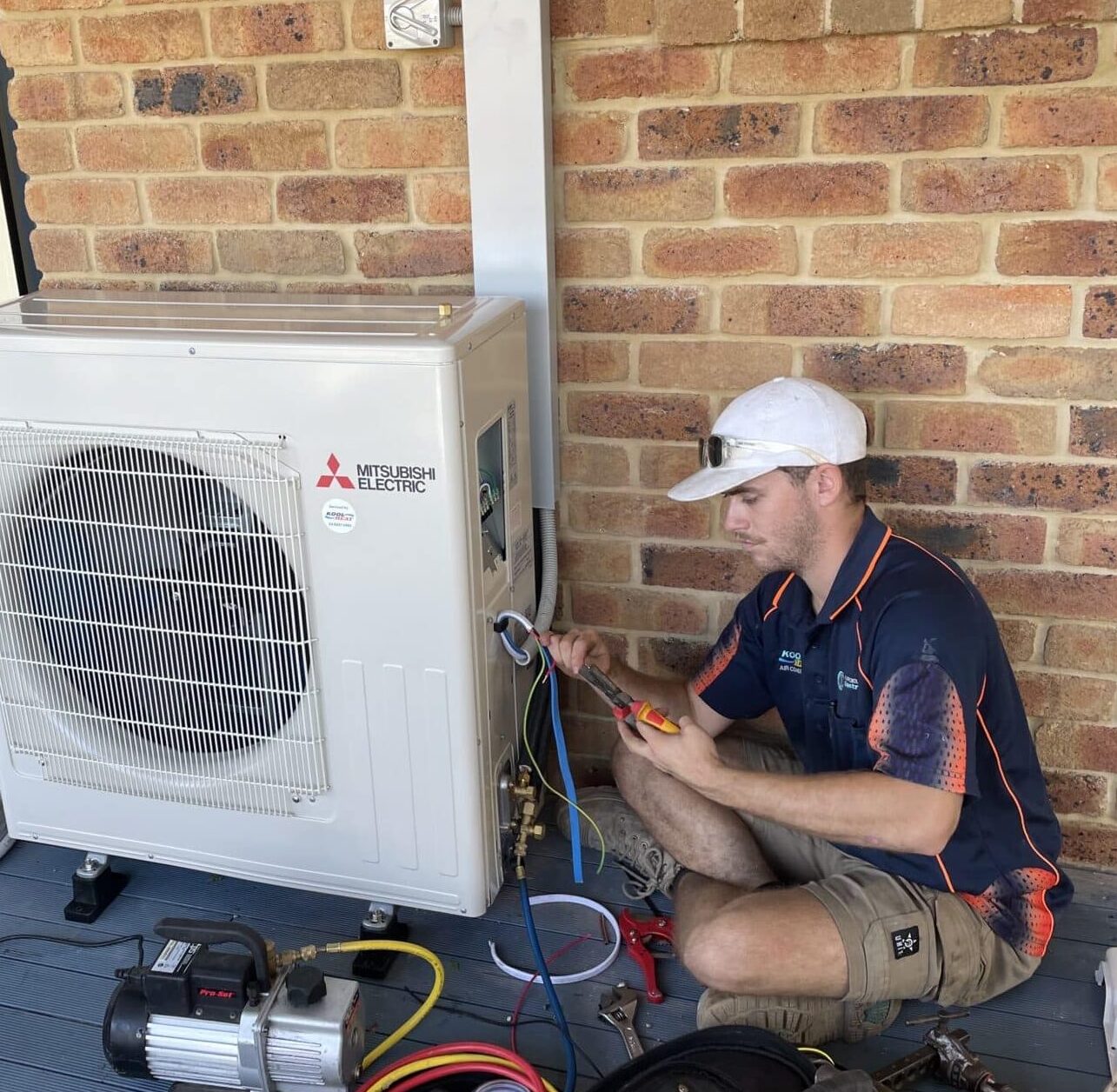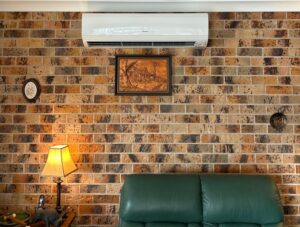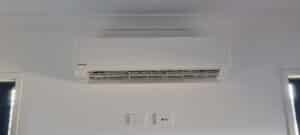You know how crucial it is to keep your air conditioning system running smoothly, especially as the seasons change. Regular maintenance not only extends the lifespan of your unit but also enhances its efficiency, saving you money in the long run. By following a seasonal checklist and incorporating some simple DIY tips, you can prevent minor issues from escalating into major headaches. But what are the signs that indicate it’s time to call in a professional? Stick around, and you might just discover the key to maintaining your comfort all year round.
Importance of Regular Maintenance
Regular maintenance of your air conditioning system is crucial for ensuring it operates efficiently and lasts longer. By routinely checking and cleaning your unit, you can prevent minor issues from escalating into costly repairs.
This proactive approach not only enhances performance but also improves energy efficiency, which can lower your utility bills. Additionally, a well-maintained system reduces the risk of unexpected breakdowns, keeping your home comfortable, especially during hot months.
You’ll also benefit from better air quality, as regular maintenance helps remove dust and allergens from your system. Ultimately, investing time in maintenance now saves you money and stress in the future, ensuring you enjoy a consistently cool environment without interruptions.
Seasonal Servicing Checklist
To keep your air conditioning system running smoothly, follow a seasonal servicing checklist that covers all the necessary maintenance tasks.
Start by inspecting and replacing the air filters every month or two to ensure optimal airflow.
Check the thermostat settings to guarantee your system is operating efficiently.
Clean the outdoor condenser unit by removing debris and ensuring proper airflow.
Inspect the ductwork for any leaks or blockages that could hinder performance.
Additionally, examine the drainage system for clogs and clean any build-up.
Lastly, schedule a professional maintenance visit at least once a year to address any underlying issues.
DIY Maintenance Tips
While professional maintenance is crucial, you can easily perform several DIY tasks to keep your air conditioning system in top shape. Start by regularly checking and replacing the air filter every one to three months. A clean filter improves airflow and efficiency.
Next, inspect the outdoor unit for debris, like leaves or dirt, and clear it away to ensure proper airflow. You should also check the condensation drain for blockages; if it’s clogged, use a wet/dry vacuum to clear it.
Lastly, keep the thermostat calibrated. If it seems off, recalibrate it according to the manufacturer’s instructions. By following these simple steps, you can help extend your system’s lifespan and maintain its efficiency throughout the year.
Signs Your AC Needs Professional Help
Frequently ignoring certain signs can lead to bigger issues with your air conditioning system, so it’s crucial to recognize when it needs professional help.
If you notice your AC is blowing warm air, that’s a clear red flag. Additionally, strange noises like rattling or grinding often indicate mechanical problems requiring expert attention.
You should also pay attention if there’s an unusual increase in your energy bills, as this may signal inefficiency or a malfunction. If you detect any strange odours, such as burning or musty smells, it’s time to call a technician.
Lastly, if your system frequently cycles on and off, this could mean it’s struggling and needs a professional evaluation to avoid costly repairs down the line.
Energy Efficiency Best Practices
Recognizing when your AC needs professional help is the first step, but maintaining energy efficiency can save you money and extend the life of your system. Start by changing your air filters regularly—every 1-3 months—to ensure proper airflow.
Keep your outdoor unit clear of debris and vegetation, allowing it to operate efficiently. Set your thermostat a few degrees higher when you’re away; every degree can reduce energy consumption. Consider using a programmable thermostat for added convenience.
Insulate your home well to prevent cool air from escaping and hot air from entering. Lastly, schedule annual maintenance checks to catch issues early and keep your system running smoothly.
Following these best practices will help you maximize efficiency and minimize costs.
Frequently Asked Questions
How Often Should I Replace My Air Filter?
You should replace your air filter every one to three months, depending on usage and filter type.
Regularly checking it ensures optimal performance, improves air quality, and extends your system’s lifespan.
Don’t forget!
Can I Service My AC Myself Without Voiding the Warranty?
You can service your AC yourself without voiding the warranty, but it’s crucial to check your manufacturer’s guidelines first.
Some maintenance tasks are allowed, while others may require professional assistance to maintain coverage.
What Tools Do I Need for Basic AC Maintenance?
For basic AC maintenance, you’ll need a screwdriver, multimeter, vacuum cleaner, coil cleaner, and a fin comb.
Having these tools ready will help you keep your system running efficiently and extend its lifespan.
Is It Safe to Run the AC While It’s Being Serviced?
It’s not safe to run the AC while it’s being serviced. Doing so can lead to further damage or injury.
Always wait for the technician’s approval before turning on the unit after maintenance work.
How Can I Tell if My AC Is Too Old to Repair?
To determine if your AC’s too old to repair, check its age, repair frequency, and efficiency.
If it’s over 10-15 years old and needs frequent repairs, it might be time to replace it.
Conclusion
By prioritizing regular maintenance and following the seasonal checklist, you can keep your air conditioning system running smoothly all year round.
Don’t forget those DIY tips to boost efficiency and watch for signs that it’s time to call in a pro.
Implementing energy-saving practices won’t only enhance comfort but also save you money in the long run.
Stay proactive, and your AC will reward you with reliable performance and longevity.



